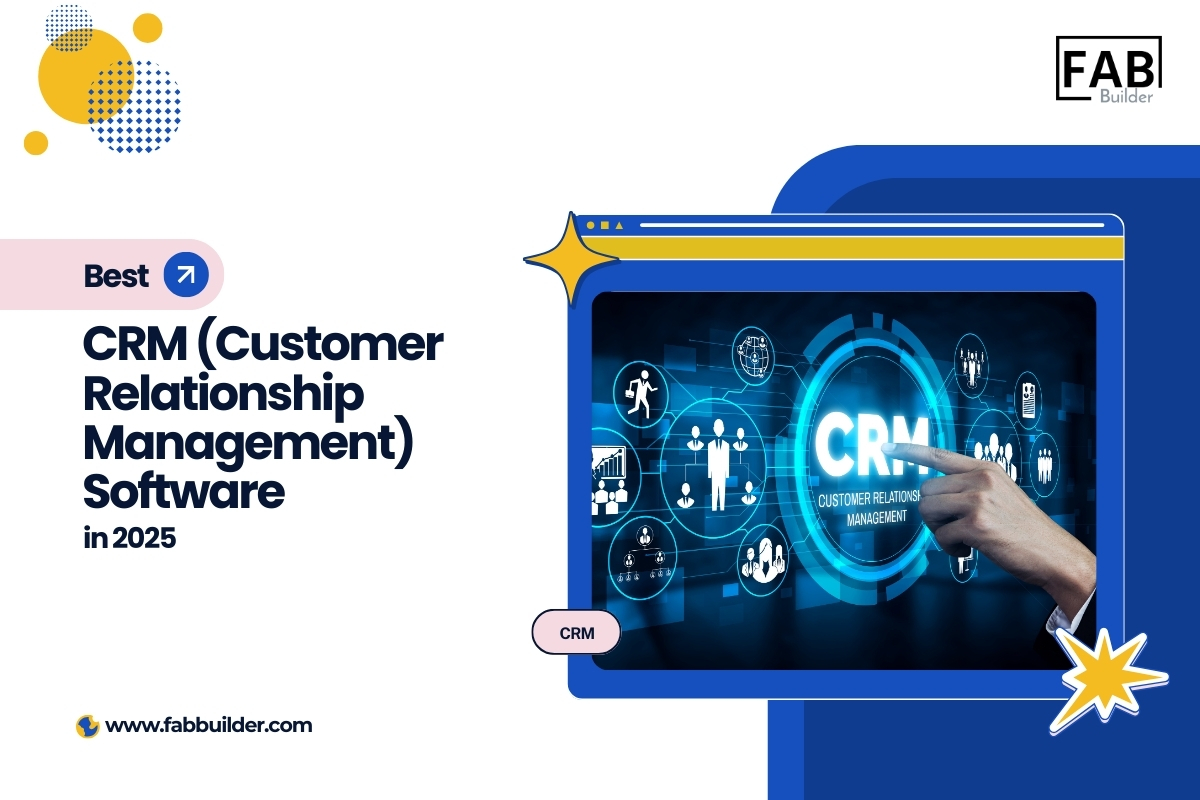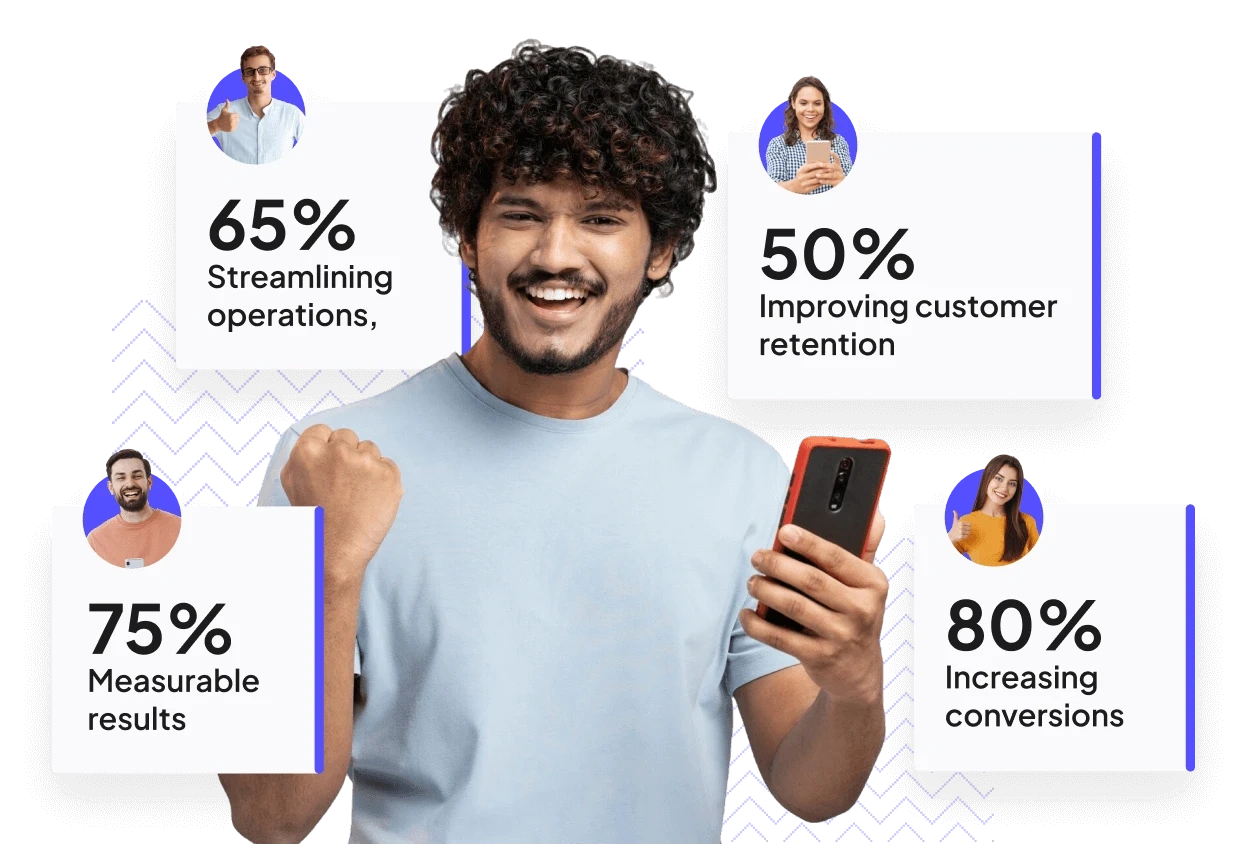What if you could increase sales, respond faster to customers, and never lose a lead again—without hiring more people? Today’s business environment moves fast. Customers expect instant replies, sales cycles are shorter, and competition is tougher than ever. Yet many businesses still rely on spreadsheets, manual follow-ups, and scattered tools—leading to missed opportunities and inconsistent customer experiences. This is exactly where a CRM customer relationship management software becomes a game-changer. A CRM centralizes your customer data, automates routine tasks, tracks every conversation, and helps your team work smarter—not harder. Whether you're a founder, business owner, team leader, or project manager, choosing the right CRM can unlock higher productivity and more predictable growth. But here’s the challenge: This in-depth guide simplifies everything. You’ll learn what a CRM really does, why it matters in 2025, what features to look for, and how to choose the crm software best aligned with your goals. We also compare the best CRMs and top crm platforms so you can confidently make the right decision.
Let’s get started and find the perfect CRM for your business growth. What Is a CRM?A CRM, or Customer Relationship Management software, is a digital system that helps businesses manage their interactions with leads, prospects, and customers—all in one place. Instead of juggling spreadsheets, emails, WhatsApp chats, and multiple tools, a CRM centralizes everything so your team always knows who your customers are, what they need, and where they are in the sales or support cycle. What Are the Benefits of Using CRM SoftwareUsing CRM software helps businesses work smarter, not harder. Key benefits include:
A CRM isn’t just software—it’s a relationship manager software that helps your business build stronger customer relationships and drive growth. Types of CRM SoftwareCRM systems aren’t one-size-fits-all. Different types of crm platforms are built for different goals — understanding which kind you need can guide your selection of the best CRM for your business. Here are the main types: 1. Operational CRM
2. Analytical CRM
3. Collaborative CRM
4. Strategic CRM
Best CRMs & Popular CRM Software for 2025With so many options available, choosing the right CRM software for your business in 2025 can feel overwhelming. Some platforms stand out because of their usability, features, scalability, and value. Below, we break down the best CRM software and highlight what makes each one unique. 1. Salesforce CRMSalesforce is ideal for organizations with complex workflows, global teams, and extensive reporting needs. Its AI-powered tools help teams predict sales outcomes and optimize customer engagement.
2. HubSpot CRMHubSpot is great for teams starting their CRM journey. It combines sales, marketing, and customer support features in one platform and makes adoption simple for small teams.
3. Zoho CRMZoho CRM is perfect for businesses that want affordability without sacrificing powerful features. Its automation capabilities help teams streamline daily operations while providing actionable insights.
4. FAB CRM (Modern Automation-First CRM)FAB CRM combines affordability, automation, and a user-friendly interface. Unlike some legacy CRMs, it prioritizes getting teams up and running quickly, reducing manual work while giving full visibility into customer interactions. For businesses moving from spreadsheets or fragmented tools, FAB CRM is a scalable, smart alternative that grows with your team.
5. PipedrivePipedrive makes managing deals easy. Its pipeline-first approach is perfect for sales teams that want to track progress, forecast revenue, and focus on closing deals efficiently.
6. Microsoft Dynamics 365Dynamics 365 is ideal for large businesses that need full visibility across sales, service, and operations. Its deep integration with Microsoft tools makes collaboration and reporting seamless.
7. Freshsales (by Freshworks)Freshsales is ideal for teams that want simplicity but still need powerful AI-driven insights and automation. It’s especially effective for smaller sales teams who want to streamline pipeline management.
How to Choose the Best CRM Software for Your BusinessSelecting the right CRM customer relationship management software is crucial. The best CRM isn’t always the most expensive or feature-packed—it’s the one that aligns with your business needs, team workflows, and growth goals. Here’s a step-by-step guide to make the right choice: 1. Define Your Business NeedsBefore exploring crm platforms, identify what problems you want to solve. Ask yourself:
Knowing your requirements will help you filter crm software that is relevant to your business size and industry. 2. Consider Your Team and User AdoptionEven the most advanced CRM is useless if your team doesn’t use it.
3. Evaluate Key FeaturesFocus on the features that matter most for your business:
The best CRM provides a balance of these features without overwhelming your team. 4. Check for ScalabilityYour business will grow, and so will your CRM needs. Look for platforms that:
Platforms like FAB CRM are designed to scale, making it easier for growing startups and SMBs to expand without switching systems. 5. Assess Pricing and ROICRM pricing models vary: subscription-based, per-user, or tiered plans. Consider:
Choosing the crm software best suited to your budget ensures sustainable adoption. 6. Test Before You CommitMost leading crm platforms offer free trials or demo versions. Use them to:
Hands-on experience is the best way to ensure the CRM matches your workflow. 7. Look for Vendor Support & CommunityA CRM’s support and resources can make a huge difference:
Platforms like FAB CRM provide dedicated support and onboarding assistance, ensuring smooth implementation. 8. Prioritize Customer-Centric CapabilitiesRemember, the ultimate goal of a relationship manager software is to enhance customer relationships:
The best CRMs don’t just store data—they empower your team to build meaningful, long-term relationships. By following these steps, business owners, founders, and team leaders can confidently choose a CRM that not only fits their current operations but also supports growth, automation, and stronger customer relationships. What Are the Common CRM Mistakes to AvoidImplementing CRM customer relationship management software can transform your business, but many teams make avoidable mistakes that reduce ROI and adoption. Here’s what to watch out for: 1. Not Defining Clear ObjectivesMany businesses adopt crm software without a clear plan. Without defined goals—like improving lead tracking, increasing sales, or streamlining customer support—a CRM becomes just another tool with little impact. Tip: Identify the business problems you want to solve and align your CRM implementation accordingly. 2. Underestimating User AdoptionEven the best CRM fails if your team doesn’t use it properly. Complex interfaces, lack of training, or poor onboarding can lead to low adoption. Tip: Choose user-friendly platforms like FAB CRM, provide proper training, and set up role-specific dashboards to simplify usage. 3. Overcomplicating ProcessesSome companies try to use every feature a CRM offers, creating overly complex workflows. This often overwhelms teams and slows down productivity. Tip: Start with essential features like contact management, lead tracking, and basic automation. Expand as your team becomes comfortable. 4. Ignoring Data QualityA CRM is only as good as the data it contains. Duplicate entries, outdated information, or incomplete records can lead to poor insights and lost opportunities. Tip: Regularly clean and update your database to maintain a reliable customer relationship software. 5. Failing to Integrate ToolsUsing a CRM in isolation limits its value. Disconnected email, marketing, and support tools can create gaps in customer experience. Tip: Ensure your crm platforms integrate with your communication channels, marketing systems, and analytics tools. 6. Not Leveraging AnalyticsMany teams collect data but fail to act on it. Without using reports, dashboards, and insights, opportunities for growth and efficiency are missed. Tip: Track KPIs, monitor pipeline health, and use analytics to make data-driven decisions. 7. Choosing the Wrong CRM for Your BusinessSelecting a CRM that doesn’t match your team size, workflows, or business goals can create frustration and waste resources. Tip: Evaluate options like FAB CRM, Salesforce, HubSpot, or Zoho based on your specific needs, scalability, and budget. Avoiding these common mistakes ensures that your CRM investment delivers real business value, improves customer relationships, and drives team efficiency. ConclusionChoosing the right CRM customer relationship management software can transform the way your business manages customer relationships, streamlines workflows, and drives growth. From centralizing customer data to automating repetitive tasks, the right CRM empowers your team to work smarter, make data-driven decisions, and deliver a seamless experience for your customers. While there are many popular CRM software options available—Salesforce, HubSpot, Zoho, Pipedrive, Dynamics 365—businesses now have modern alternatives like FAB CRM, designed to combine simplicity, automation, and AI-powered insights for startups, SMBs, and growing teams. By defining your goals, evaluating your team’s needs, and choosing the crm software best suited to your workflows, you can avoid common mistakes, maximize ROI, and foster stronger, long-term customer relationships.
Ready to take your customer management to the next level? Explore FAB CRM today and see how intelligent automation, centralized data, and actionable insights can drive your business forward. |
Frequently Asked Questions
What is CRM software and why do I need it?
CRM, or customer relationship management software, helps businesses manage customer interactions, leads, and sales pipelines in one central place. It improves organization, automates repetitive tasks, and enables your team to build stronger relationships and increase conversions.
What are the different types of CRM software?
The main types of crm platforms include:
- Operational CRM: Focuses on sales, marketing, and service automation.
- Analytical CRM: Provides insights from customer data for better decision-making.
- Collaborative CRM: Improves communication and teamwork across departments.
- Strategic CRM: Prioritizes long-term customer relationships and retention.
How do I choose the best CRM for my business?
Choose a CRM by evaluating your business size, goals, team workflows, integration needs, and budget. Consider usability, automation features, analytics, and scalability. Platforms like FAB CRM are ideal for growing businesses seeking simplicity and efficiency.
What are common CRM mistakes to avoid?
Common mistakes include:
- Not defining clear objectives
- Low team adoption due to complex interfaces
- Overcomplicating workflows
- Ignoring data quality
- Failing to integrate other tools
- Not leveraging analytics
Avoiding these ensures you get the full value from your crm customer relationship management software.
What features should I look for in a CRM?
Essential features include:
- Contact and lead management
- Workflow automation
- Reporting and analytics dashboards
- Integration with communication and marketing tools
- Multi-channel customer interaction support
The best CRMs offer a balance of these features tailored to your business needs.
What makes FAB CRM different from other CRMs?
FAB CRM combines AI-powered insights, workflow automation, and multi-channel communication in an intuitive, easy-to-use platform. It’s designed for startups, SMBs, and growing teams to centralize customer data, save time, and scale efficiently without overwhelming complexity.

